On Chinese Philosophy

Interview by Richard Marshall

'If you want to know what really animates much Neo-Confucian distaste for Buddhism, I find it helpful to spend some time unpacking the ubiquitous Neo-Confucian claim that Buddhism appeals to and recommends a kind of selfishness. Charitably understood, I think I take the Neo-Confucians to be saying that the proper attitude that one should have toward one’s ethical values is to regard them as worth instantiating for their own sake, and not as something to be pursued as a means to personal salvation or liberation from personal suffering.'
'To give you a sense of what Zhu thought and wrote about in depth, I can start by distinguishing between the issues that are frequently discussed in the recent secondary literature and then turn to some issues that really interested him and his contemporaries but are less often discussed nowadays. There is a lot of secondary literature on Zhu’s views about the vexed relationship between qi (vital stuff, which occupies space and time) and Li (metaphysical Patterns or principles that account for or explain order, norms, and intelligibility). And there must be a small library of secondary scholarship on his understanding of the first three steps or items in the process of cultivating the self, as described in the canonical Confucian text known as the Great Learning. The three steps or items are “investigating things,” “extending knowledge,” and “making one’s (motivational) thoughts sincere.”'
'On Huang’s reading of the Cheng brothers, their answer is that for human beings there’s a special sort of joy that comes from being moral, and that joy requires moral knowledge in various respects that Huang insightfully documents and unpacks. We can realistically expect to derive a distinctively human sort of joy from knowingly being moral, and that’s why we should do it. I have some reservations about framing this as what I call a “direct motive” – I think that personal joy is supposed to play a more subtle, indirect, and ancillary role in motivating people to be virtuous or morally good. And I also think it is important to distinguish between ways in which experiencing a “distinctively human joy” can motivate us.'
'Mengzi is more concerned about bad rulers than authoritarian rulers – it is harder to say whether he would object to authoritarianism as such. He was famous for saying (sometimes quite directly and with only the thinnest veneer of ritual courtesy) that rulers who don’t provide for the basic needs of their people should be fired. Ideally, they’d just fire themselves or members of the ruler’s family would depose them, but if all else fails, a broader rebellion could be warranted. For much of the modern era, scholars of Confucianism have cited Mengzi’s views on rebellion as evidence that he was a kind of proto-democratic thinker and believed in a right of popular rebellion. In fact, I think there’s pretty good evidence that Mengzi had a relatively clear theory of “just revolt” (just as he had a relatively clear theory of just war), with lexically ordered criteria that must be met before revolution could even be considered warranted, etc.'
Justin Tiwald is a philosopher who works at the intersections of ethics, political philosophy, and traditional Chinese philosophy, with particular interests in Chinese and Western notions of empathy, virtue, well-being, and rights. Here he discusses the sociology of Chinese philosophy, shame and punishment, neo-Confucianism, the relationship between Confucianism and Buddhism, meditation, aspects of metaphysics shared by Buddhism and Confucianism, three periods of Chinese philosophy, Zhu Xi, Pattern in Confucianism and its relation to qi, ‘heartmind’, Kant and Dai Zhen, the Daodejing and the Zhuangzi and wellbeing, Cheng Brothers on ‘Why be moral?’, Confucianism on human rights, Confucian philosophers and “virtue politics,” and Mengzi and his “just revolt theory”.

3:16: What made you become a philosopher?
Justin Tiwald: It’s hard to say for certain, but I do think that maybe the seeds were planted early. There’s a well-known family story about my raising the problem of evil when I was five. In elementary school, I decided that there were airtight arguments for the view that citizenship and nationality should be irrelevant for purposes of determining our obligations to one another, so that I ended up donating multiple weeks of my allowance to a school fund drive for famine victims in Ethiopia. (I no longer believe that about citizenship and nationality, but am very glad that I donated.) I grew up with a family that cares a lot about justice and ethics have always really admired them for that, particularly because their activism has been motivated by an expansive sense of compassion rather than us-vs.-them thinking or tribal loyalties. I closely followed the movement organized around the Tiananmen Square protests in 1989, which got me thinking about fundamental questions in political philosophy and motivated me to study Chinese language in particular. Well before taking my first philosophy class, I read some of Plato, Rousseau, and the Daodejing, although with very little understanding. I also read some 20th-century philosophy with more understanding. I particularly remember Owen Flanagan’s Consciousness Reconsideredand some of the essays in John Martin Fischer’s The Metaphysics of Death, which I purchased from a bookstore on a whim.
But I don’t really know what made me become a philosopher and don’t have a neat and tidy story to tell. No doubt, luck played a huge role. I am very fortunate to live at a time when philosophy can be both a way of life and a research program, to have been a been a bit obsessive about my academic work in high school and college, and to have had encouraging and inspirational teachers. I have never felt that the world owes me a job as a teacher of philosophy, not to mention as a researcher of philosophy. Both have always seemed like windfalls to me.
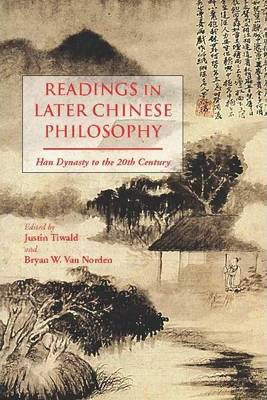
3:16: You’re an expert in aspects of Chinese philosophy and I think pre-modern Chinese philosophy, although not exclusively. Chinese philosophy is an enormous area of philosophy embracing Confucianism, Daoism, Buddhism, and all the different varieties of these and others. For someone not familiar with this philosophical landscape are there some salient features which you can pick out that help us to characterize this and see where comparisons and contrasts are most apt when looking at it from a different tradition. Anthropologists suggest that the social organization of Chinese society over thousands of years has been very different from what we find elsewhere and this makes me think that this might help us understand why the Chinese philosophy has developed as it has. I wonder if you can say something about that, perhaps touching on the notion of autonomous shame as a key feature of Kongzi’s philosophy and culture – and what punishment looks like from this perspective?
JT: Chinese philosophy is indeed somewhat different, althoughnot in the ways that philosophers trained in the West tend to assume. People who don’t know better think that Chinese philosophy is primarily conducted in pithy little aphorisms or nuggets of wisdom like you find in the Analects, the Daodejing, or in a Buddhist kōan(Ch. gong’an 公案). But taking those texts as representative of Chinese philosophy is like taking the Judeo-Christian biblical texts as representative of Jewish or Christian (or Islamic) philosophy, or Plato’s dialogues as representative of Western philosophy more broadly. Just like in Western philosophy, in Chinese philosophy there is also a vast body of literature that is meant to develop and defend more complicated and systematic interpretations of ideas that are merely suggested by the classical sources. By the sixth or seventh century of the common era, there was already a technical and widely shared vocabulary that nearly all Chinese philosophers drew from and quibbled about.
There are some differences in presentation or style, I suppose, but they’re basically differences of degree and not of kind. More of the major texts are meant to display the famous philosophers in their capacity as teachers rather than as experts arguing with other experts. So more of the obligatory reading by big-name philosophers is commentary on classical texts or carefully edited records of their discussions with students. But the “must-reads” include plenty of expository essays and philosophical letters as well, and most of those read as contributions to an expert discourse. To be sure, the later historical Chinese philosophers do tend to spend time trying to show that their views align with the views of some canonical authority – more time than, say, Descartes or Hume spend on such things. But there are plenty of arguments that readers are meant to find plausible or persuasive on their own terms, whether or not they happen to see the Buddha or Kongzi (Confucius) as authoritative. And much of the exegesis of canonical texts is meant to make canonical views plausible to readers by their own lights. In the later period that I work on most extensively (roughly, the 11ththrough the 18thcentury), nearly all of the well-known philosophers say that a defining goal of their program of learning is to “get it oneself” (zide 自得).
As for autonomous shame and punishment, you are generously offering up an issue that I tried to address in one of my papers on the Analects, the classical text that is traditionally attributed to Kongzi and the first generation of his students. One of the great debates in Chinese political philosophy has to do with whether social coordination problems should be solved with laws and the threat of punishments (as the Legalists propose) or by providing circumstances conducive to the development of relationship-oriented virtues and virtuous behaviors (as the early Confucians propose). A tremendous amount has been written on this debate, particularly on how impartial application of laws and the threat of punishment can undermine the sorts of motives and bonds necessary for special relationships, such as affection and respect for family members and friends. I suspect that most 21st-century philosophical readers are already predisposed to jump on board with the arguments that appeal to the value of relationships based on affection and respect, so I wanted to explicate another line of argument that challenges us a bit more – namely, that governing people by threat of punishment undermines their ability to cultivate an autonomous sense of shame.
Thanks to Bernard Williams and Martha Nussbaum, just about every philosopher with an interest in moral psychology has views about shame as a source of ethical motivation, and these days most tend to see it as more bad than good, in part because shame seems to be deeply concerned with how one appears in the eyes of others and tends to be responsive to superficial concerns like poverty, physical appearance, and public markers of low status. But Kongzi is adamant that he has a sense of shame that doesn’t track the superficial things that are disdained by his contemporaries (such as wearing shabby clothes or having bodily deformities) and instead follows his own sense of what is worthy of shame (such as profiting from corruption or exploitation). And he thinks that a ruler who models virtuous behavior and encourages people to practice rituals is far more likely to inculcate that sense of shame than a ruler who relies on laws and punishments. My paper tries to clarify why that is and what sort of autonomy Kongzi (as depicted in the Analects) seems to have in mind.
Your question also invites me to say a bit about how these views might or might not cohere with the way that Chinese society has been organized over the centuries. I should start by admitting that on this issue I’m on firmer footing doing intellectual history than I am doing sociology (and just barely, at that), but roughly and tentatively, my view is that except for the short-lived Qin dynasty (221-206 BCE), which was unabashedly Legalist, neither the Confucians nor the Legalists have prevailed. Legalism officially fell out of favor in the Han dynasty (206 BCE – 220 CE) and was never again embraced as state orthodoxy, but Legalist legal codes and institutional models were too efficacious to abandon and Legalist political theory was also too compelling to ignore – the work of the Legalist Han Feizi (c. 280-233 BCE) is some of the most interesting political thought ever written. Many later Confucian thinkers quietly adopted Legalist views about institutional roles and “positional power” (shi 勢) in governance, and even allowed that there are significant advantages in applying laws and institutional rules impartially and somewhat ruthlessly.
China was really the first civilization to theorize about the nature and structure of the massive, bureaucratic institution that governs large societies of strangers (long before Weber), and for many centuries it was more successful at creating and sustaining bureaucratic states than anyone. But personal relationships certainly play a larger role in social coordination in more Confucian cultures than they do for most of us who live in more individualistic cultures. Of course, relationships play a significant role in all cultures, but they don’t always need to be as thick or substantial to be functional, as they do in cultures shaped by Confucianism. In the U.S., for example, working relationships don’t need to be based on a shared history, family connection, or a sense of gratitude for a series of previous generosities. Quite often, just one previous face-to-face encounter at a professional conference or the recommendation of a mutual acquaintance is enough.
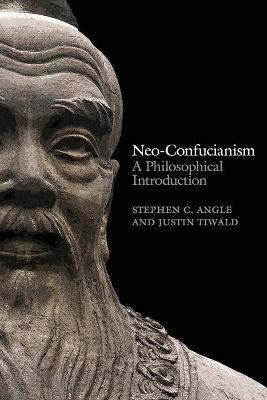
3:16: Confucianism is a key area in this tradition but it’s a philosophy that has developed and changed as would be expected over time. You’ve written about this change across the Song, Yuan and Ming dynasties. Now this is a vast period spanning 960 CE to 1644 CE and is thought as being only second in importance to the classical pre-Qin period. To help orientate readers unfamiliar with any of this can you sketch for us what the philosophical agenda is here? Is it helpful perhaps as a starting point at least to consider both Confucianism and Neo-Confucianism as a species of virtue ethics?
JT: Yeah, that’s basically the heyday of what some scholars now call “Neo-Confucianism.” The rough-and-ready historical account goes like this: there was early Confucianism (pre-Qin or classical Confucianism), then Buddhism arrived in China, which compelled Confucianism to expand and adapt in various ways, and then the major Confucian philosophers of the Song-Ming period offered the most comprehensive and sophisticated articulation and defense of Confucianism, over and against Buddhism (and Daoism, which was also very popular). Before the arrival of Buddhism, classical Confucians had systematic views about ethics, politics or governance, and some views on specific issues in epistemology and cosmology, but they didn’t have anything approaching Buddhism’s systematic and sometimes highly technical treatments of issues in metaphysics and epistemology broadly construed, nor did they have well established views about how to achieve the sort of mental discipline that Buddhists prized. Because the Neo-Confucians worked so hard to make Confucianism competitive with Buddhism in these other areas of intellectual inquiry, Confucianism came to have more of the technical apparatus in metaphysics, epistemology, and mental discipline – and just more philosophical systematicity in general – by the 11thcentury. And then there was a great deal of pluralism that pushed the Neo-Confucian philosophers to further refine their positions and sharpen their differences with one another. Moreover, the Neo-Confucian philosophers of that era were hugely influential. The philosophy of Zhu Xi (1130-1200) became a kind of orthodoxy all over East Asia, especially in China and Korea. And the success of Neo-Confucian philosophy in this era doesn’t appear to have all that much to do with China’s ability to project its power militarily, as the widespread adoption of these philosophers happened mostly when China itself was either a militarily subordinate state or part of the Mongol Empire.
There is quite a lot of breadth and diversity amongst Neo-Confucians in the Song-Ming period, but I can try to make some general observations. In terms of their substantive positions, it is striking that most were very interested in the nature and cultivation of virtue, were rather unreflective about their patriarchal values and presuppositions, defended a relatively pure meritocratic system for most political appointments, and saw themselves as prioritizing human relationships and ethics over personal salvation in various ways. But there were plenty of exceptions, including some radical Neo-Confucians who advocated for women’s education and certain kinds of women’s equality and some others who wanted to restore the ancient enfeoffment system for some political appointments. It is striking how seriously Confucian philosophers took their responsibility to speak truth to power, both as a quasi-institutional duty and as a special source of pride for people who have the benefit of a classical and philosophical education.
3:16: Is the relationship between Confucianism and Buddhism best understood as one of rivalry? Can you say how you understand this relationship and say where the big disagreement lay? Was it to do with their contrasting positions regarding individual and group liberation from suffering and responsibility? And more generally, is Confucianism really anti-religion?
JT: Most of the influential Buddhists and Confucians understood themselves as rivals of the other camp, and rivals always manage to find quite a lot to disagree about. I have a book chapter that reconstructs and assesses a number of Zhu Xi’s criticisms of Buddhism. For example, he thought that Chan Buddhist practices had a cunning way of dressing up subjective whims and personal preferences and passing them off as enlightened responses to the world. He also thought that Buddhist compassion was incompatible with the special attachments necessary for ethically valuable and meaningful relationships. Like a lot of Confucian critics of Buddhism, he sometimes pointed out that Confucian ways of cultivating their particular virtues were far more psychologically realistic than Buddhist ones – for example, you’re more likely to develop a broad and inclusive feeling of humaneness or benevolence by building on and extending the sort of love that comes naturally for family and close friends, rather than through radical non-attachment.
But if you want to know what really animates much Neo-Confucian distaste for Buddhism, I find it helpful to spend some time unpacking the ubiquitous Neo-Confucian claim that Buddhism appeals to and recommends a kind of selfishness. Charitably understood, I think I take the Neo-Confucians to be saying that the proper attitude that one should have toward one’s ethical values is to regard them as worth instantiating for their own sake, and not as something to be pursued as a means to personal salvation or liberation from personal suffering. Moreover, there is a tendency among Confucians of this period to avoid ways of justifying values that appeal to highly speculative and contested claims about the afterlife. Confucians in the Song-Ming period liked to say that their conception of the human Way (roughly, the proper way for humans to live) is all about reciprocal processes of life, growth, and reproduction that make some provision for continuity from one generation to the next (sheng sheng bu xi生生不息), which they contrasted with visions of the human Way that depend on otherworldly goods like nirvana or auspicious rebirths. There definitely wasn’t a clear distinction between religious and secular philosophy before China’s encounter with the West, but some Neo-Confucianism is anti-religious in the sense that it doesn’t want to pin its ethics on certain kinds of highly speculative views that we now think of as religious, such as views about the afterlife.
3:16: Meditation was one area to which the Confucians objected, wasn’t it? Why was this thought of as being an error for good living?
JT: Before Buddhism arrived in China, I really don’t think that there was much discussion of meditation in Confucian texts. After Buddhism arrived, you’d be surprised at how many Confucians recommended meditation. Some even worked on distinctively Confucian variants of meditation, the most notable of which was called “quiet sitting” (jing zuo 靜坐). As I read the later Confucian tradition, there was a lot of envy of Buddhists for their well-developed techniques of mental discipline, which inspired many Confucians to develop Confucian variants.
Zhu Xi makes for a good case study, as his views about meditation are nuanced. In his early experimentations with a more quietistic type of Neo-Confucianism, he tried to have enlightenment experiences through meditation, but to no avail. His frustration led to what some have described as a spiritual crisis, and from this crisis his more socially engaged and scholastic model of ethical cultivation was born. But he still thought that regular meditation helped to strengthen certain powers of concentration and self-control, and he readily conceded that Buddhists tended to be better at these things than Confucians, at least in his day. His complaint was just that Buddhists thought meditation could do a lot more of the work of achieving insight than it could actually do. Most people, he thought, can’t achieve much insight without the experience of living in families and communities, without reading philosophy and history, and so on. So he admired good meditators and encouraged meditation, but saw it as having a more ancillary role in personal cultivation and enlightenment. He also thought that Buddhists failed to identify the mental state that can successfully rein in unruly feelings and desires. On his view, Buddhists tended to see that mental state as a state of mindfulness that is free of certain kinds of value judgment. Building on the Cheng brothers (11th-century founders of Neo-Confucianism), Zhu thought it better to characterize that mental state as “reverential attention” (jing 敬) – a state that has much of the focus and detachment of the Buddhist onebut also includes a deep sense of reverence that helps to humble and thus quiet one’s own petty, self-centered preoccupations.
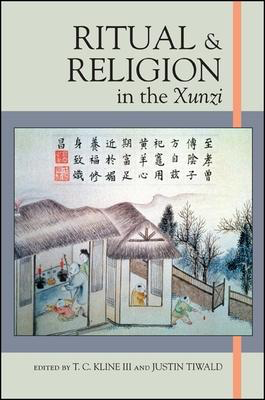
3:16: There seem to be aspects of metaphysics (such as the notion of there being an ultimate unity of things which Buddhists talk about in terms of emptiness) and views on human nature however that Confucianism takes from Buddhism and Daoism. Is that right – do Confucian virtues include the idea that we all have a kind of buddha-nature (foxing) or buddha-womb (in Sanskrit, tathāgatagarbha; in Chinese, rulai zang)?
JT: Yes, I think that’s basically right, although the Neo-Confucians would have chafed at this way of characterizing their account of human nature. On this issue, I’m persuaded by Dai Zhen (1724-1777), the truly extraordinary and brilliant Qing-dynasty philosopher and philologist that I wrote my dissertation on. The most succinct way of putting Dai’s critique of mainline Neo-Confucians is to say that they fell under the spell of Buddhism and arrived at the wrong way of showing that human nature is good. The correct way is to construe the good natural qualities developmentally– they are the qualities that come about when typical specimens of a natural kind are given a healthy upbringing, or something like that. It is in the nature of humans to be good in roughly the same way that it is the nature of peach trees to produce peaches – it’s not innate to every peach tree to produce peaches, but under the proper circumstances most conducive to the tree’s own good health, typical peach trees will have that ability. But due to the pervasiveness and attractiveness of the Buddha-nature idea, mainline Neo-Confucians came to adopt a stronger interpretation of the doctrine that human nature is good, which is that the good qualities are in all humans innately, just as some Buddhists thought that everyone has the well-formed nature of a Buddha in them from birth.
Dai thinks this is a big mistake for several reasons. For instance, by insisting that humans are innately good by nature, mainstream Neo-Confucians need to do more metaphysical heavy lifting to explain why the vast majority of people are not in fact good. To solve that problem, they posit that there is a second nature or second aspect of nature, from which selfish thoughts, inclinations, and desires arise. And it’s the second nature that accounts for the fact that so many people fail to be good. But this “two natures” solution creates all kinds of metaphysical and epistemological trouble for them. They need to explain why one nature is somehow more basic or fundamental for purposes of determining what we really are and what our ethical values should be, and they can’t do that without more convoluted and far-fetched metaphysical presuppositions. Dai also thinks they are compelled to adopt an incoherent account of a thing’s nature, such that one’s true nature can’t do the explanatory work that one would normally expect of it – e.g., explaining what type or kind (lei類) an individual belongs to, by reference to features that distinguish members of one kind from members of another. He also suggests that positing an innately good nature makes it harder to explain how ethically erroneous opinions arise, why a person with pure motives should feel any need to engage in perspective-taking or checking of their opinions against the views of others, and why the natural feelings and desires that arise from the supposedly impure second nature should be worth keeping or developing.
You’re also right that many of the Confucians who followed the Buddhists were drawn to the idea that, in some ultimate sense, we are all one. Like the Buddhists, they tend to conceptualize this claim in terms of parts of a body – we are one with others in the same way that an eye and a foot that belong to the same body are one with one another. Unlike the Buddhists, they tend to characterize this insight as an ethical achievement. It is the mark of true humaneness or benevolence (ren 仁, the most important Confucian virtue) when people see themselves as forming “one body” with others. This is yet another complex issue in Chinese philosophy that is relatively under-theorized and often treated pretty uncharitably in Western philosophy, although Philip J. Ivanhoe has started to remedy that problem in his recent work (taking inspiration from the Neo-Confucians). It’s definitely a strength of Chinese philosophy in the later Buddhist and Neo-Confucian periods that the philosophers thought so much about how the virtues of care and empathy can be constituted of different ways of construing the self’s relation to others.
3:16: Discussing these philosophies without mentioning the individual philosophers is like discussing western philosophy but not mentioning Descartes, Spinoza, Kant, etc. So can you map out for us the equivalently important and influential figures from each of these periods and what they did?
JT: There’s a relatively sustained interest in philosophy for most of Chinese history, but for the sake of making it manageable I could simplify and focus on three periods: the classical period, the Buddhist period, and the Neo-Confucian period.
The classical period basically begins with Kongzi (Confucius) in the 6 th century BCE and ends either with the rise of the Qin dynasty in 221 BCE or at the end of the Han dynasty in 220 CE. The pre-Qin period in particular is sometimes called the “Hundred Schools Period” because it witnessed so much philosophical pluralism. Alas, the texts of most of those schools didn’t survive to the modern era. Of the texts that did survive, there are five whose importance and influence is comparable to that of the biblical texts and the writings of Plato and Aristotle for Western philosophy. Three of those are texts traditionally attributed to three Confucian philosophers – the Analects of Kongzi (Confucius), the Mengzi ( Mencius ), and the Xunzi. I wish more outsiders would read the Xunzi so as to disabuse themselves of the impression that all of Chinese philosophy is conducted in pithy aphorisms. The other two are traditionally attributed to Daoist philosophers – the Daodejing of Laozi and the Zhuangzi. There are some parts of the Zhuangzi that are a little superficial or far-fetched, but there are other parts that are, to this day, the best philosophical stories and therapeutic arguments ever written.
Also from the classical period is the Han Feizi, the most sophisticated and wide-ranging of the Legalist texts. That one was enormously influential and happens to be quite interesting and fun to discuss in the classroom. I don’t think it’s a stretch to say that it will someday be required reading in standard survey courses on political thought, just as Aristotle and Hobbes are. There a quite a few sophisticated Buddhist philosophers that were tremendously influential. These include Sengzhao, Zhiyi, Huineng, Fazang, and Zongmi. The somewhat mythologized Huineng played an outsize role in shaping Chan (Zen) Buddhism as we know it today, and his views are traditionally taken to be summed up in the Platform Sutra of the Sixth Patriarch. I also think that people interested in Buddhism as a distinctively Chinese or East Asian tradition should read the Treatise on Awakening Mahāyāna Faith, whose author is unknown. Most of these thinkers lived in the Tang dynasty (618-906 CE), but not all of them did. So it’s a bit of a forced chronology to say that there is a well-defined “Buddhist period.” There was great Chinese Buddhist philosophy pretty steadily from at least the 4 th century onward.
Peak Neo-Confucian philosophy is also hard to set within in a well-defined period of time. But generally speaking, the most influential Neo-Confucian philosophers lived sometime in the Song-Ming period, 960 CE to 1644 CE. This was also a time of great philosophical pluralism. While it’s true that most of the noted thinkers in this period were nominally Confucians, some of them had views that would have been unrecognizable to Kongzi or Mengzi. My go-to examples are Chen Liang, a kind of utilitarian thinker who was very critical of using Confucian accounts of China’s golden ages to justify present-day public policies and theories of good governance, and Li Zhi, an eccentric public intellectual whose views are hard to categorize – among other things, Li defended women’s education and wrote about the importance of living authentically (true to one’s “child-mind”). But neither Chen Liang nor Li Zhi had an impact comparable to the true giants of this period. I mention them only to give you a sense of the range and diversity of thought that would pass as “Confucian” ( Ru 儒)in this period.
There were two brothers in the 11 th century that did much of the work of making Confucianism more competitive with Buddhism in the ways that I mentioned earlier – developing a more systematic metaphysics for Confucianism, and developing distinctively Confucian views about mental discipline that could rival Buddhist ones. These are Cheng Hao and Cheng Yi, and together they are often called the Cheng brothers. The “must-read” text of the Cheng brothers could be translated as The Surviving Works of the Chengs of Henan, but we have yet to see anything approaching a complete translation of that. In any case, the towering figures of the Neo-Confucian period were Zhu Xi and Wang Yangming. Zhu Xi lived in the 12th century and his influence on East Asian philosophy is comparable to Kant’s on Western philosophy – philosophy in East Asia was never the same after Zhu. By intellectual temperament he was a synthesizer – always looking to take the views that he most liked from the Confucian canon, from other Neo-Confucians, and sometimes even from Buddhists and Daoists, and then finding truly innovative ways of weaving them all together. You reconstruct his big-picture philosophical views and arguments in roughly the same way that you do the same for a lot of Anglophone philosophers nowadays – by piecing them together from his attempts to clarify, fine-tune, or explain what he finds objectionable about various other thinkers on various issues. Wang Yangming was active in the 15th and 16th centuries and much more inclined to follow his own internal compass, and in general encouraged people trust their own well-intended convictions on matters ethical and philosophical. Wang’s influence helps to explain the great diversity of Neo-Confucian views, particularly in the late Ming dynasty.
3:16: Zhu Xi is one of the giants of the tradition. You can’t possibly enumerate everything he did but perhaps you can outline for us why he is considered so important in particular via his critique of Buddhism, salvation and self-cultivation, and also his distinction between self-focused and other focused empathy and his argument that self-focused empathy is particularly important for flawed characters like ourselves?
JT: You bet. In response to your last question, I compared him to Kant in terms of his influence. But in fact he’s more like Kant on steroids, insofar as every educated male who aspired to join the prestigious class of scholar officials read carefully and often memorized some of his works, for the better part of six centuries. And he wrote volumes and volumes of work – tens of thousands of pages in literary Chinese, just a sliver of which (maybe 3-4%) has been translated into modern Western languages.
Maybe I’m a bit eccentric, but I love it that Zhu Xi’s students recorded a few thousand pages of their learned conversations with him and then organized them topically. Once you get a feel for the conversations, you can almost just trust your hunches about what his students likely pressed him to clarify or defend and then find at least a couple of discussions in which he does exactly that (and these days, there are searchable e-texts, so it is easy to follow up on those hunches). Those conversations with students also give you a vivid sense of Zhu’s habits of thought and personality as a teacher, with all of his professional jealousies, sectarian loyalties, and personal disappointments and frustrations. In one conversation he basically admits that he BSed his way through the civil service exams (Zhu Xi passed the highest level of the exams at the young age of 19). He often admits to changing his mind about important philosophical issues, sometimes rather late in life.Just by looking over his considerable advice to students on reading texts you get a sense of how he wrestles with certain intellectual inner demons like motivated reasoning and wandering thoughts.
To give you a sense of what Zhu thought and wrote about in depth, I can start by distinguishing between the issues that are frequently discussed in the recent secondary literature and then turn to some issues that really interested him and his contemporaries but are less often discussed nowadays. There is a lot of secondary literature on Zhu’s views about the vexed relationship between qi (vital stuff, which occupies space and time) and Li (metaphysical Patterns or principles that account for or explain order, norms, and intelligibility). And there must be a small library of secondary scholarship on his understanding of the first three steps or items in the process of cultivating the self, as described in the canonical Confucian text known as the Great Learning. The three steps or items are “investigating things,” “extending knowledge,” and “making one’s (motivational) thoughts sincere.” It’s the first of these that is particularly interesting to scholars these days. There is also quite a lot of scholarship on his responses to other lineages of Neo-Confucians that, like him, descended from the Cheng brothers. Zhu was particularly keen to defend his views about the virtue of humaneness and his methods of ethical cultivation from Neo-Confucians that weren’t quite as scholastic as he was – Neo-Confucians that leaned too much on meditation or downplayed the importance of book learning. There is a great deal of secondary scholarship on what I described above as his “two natures” view, and on his views about fundamental metaphysical principles.
But it is striking how much he wrote and talked about that doesn’t receive much attention these days. He was very interested in just about every aspect of the acquisition of understanding and wisdom, from the methods, to the sources of epistemic failure, to the phenomenology of achieving or grasping things in the right way. Of course, he cared a lot about current issues and about how China was governed. He was generally sympathetic to the more traditional virtue-centered view of good governance, but he nevertheless got deeply and personally involved in some institutional reforms, the most consequential of which were his proposed revisions to the grain storage and loan system so that it could respond more nimbly to periodic famines. He took some significant risks to criticize corrupt officials and to advocate for taking Northern China back from the Jurchens. He often wrote and spoke of the relations between specific virtues – why some are subordinate to others in certain respects, why some couldn’t be instantiated without others, and so on. He was deeply interested in the vexed concept of sincerity ( cheng 誠 , also translated as “integrity” or “wholeheartedness”) as a necessary condition for all virtues. In his criticisms of Buddhists and more Buddhistic Neo-Confucians in other lineages, he was very concerned about how they fail to get outside of their own contingent mental states. Often, when he accuses an opponent of being too Buddhist or too much under the spell of Chan (Zen), what he has in mind is that their epistemology or model of ethical cultivation doesn’t do enough to ensure that the heartmind ( xin 心) tracks features of the world that are independent of subjective whims or preferences.
That’s really just a drop in the bucket in the context of his philosophical corpus as a whole, but hopefully it gives you some sense of him.
You are kind to allude to my work on Zhu’s distinction between self-focused and other-focused empathy. In fact, that’s really just about a technical distinction the comes up occasionally in Zhu’s commentaries and discussions with students, not a centerpiece of his teachings or writings. I spent some time piecing together the references and explicating the distinction just because it is so intriguing and has no parallel elsewhere in global philosophy. Roughly, other-focused empathizing is the sort of thing you do when you imagine how another person would think or feel and have an apt and caring response in light of it; self-focused empathizing is the sort of thing you do when you imagine how you would feel if you were in the other person’s shoes and have an apt or caring response in light of it. In the case of self-focused empathy, certain thoughts about one’s self play an important causal and motivational role in getting the apt, caring response. Zhu Xi basically comes up with this way of distinguishing between kinds of empathy on his own, and makes it very clear that other-focused empathy is ideal but that self-focused empathy will make for an acceptable fallback if we don’t have the virtuous dispositions needed for the former. But self-focused empathy is still inferior because it is more prone to empathetic paternalism (superimposing one’s own bad or misguided desires and feelings on others), because it evinces less-than-wholehearted concern for others, and because it undermines feelings of union or oneness with others. The Neo-Confucian texts are brimming with interesting debates and special terms that attach to distinctions like this one. As we stand in 2022, the historical sediment beneath our very feet is riddled with philosophical veins that have yet to be tapped. We just don’t have many people with the training to find and excavate them.

3:16: So what is Pattern in Confucianism and what is its relation to qi, which as I understand it is a kind of life force thing, and nature?
JT: Qiis something like the basic constituent of the tangible world. In our book on Neo-Confucianism, Steve Angle and I translate it as “vital stuff” and I think that comes about as close as any short English phrase can. Qi occupies space and time and has dynamic powers that make it conducive to life, growth, and reproduction. All concrete things are constituted of qi.Even “dry and withered” or completely dead and inanimate things are made up of qi,albeit qi in a more un-vital or dormant phase.“Pattern” is one of two or three established translations of Li 理(another common translation is “principle”). One oft-cited definition comes from Zhu Xi, who says that the Pattern of a given individual thing is the necessary “reason by which it is as it is, and the rules to which it should conform.” And there’s a tremendous amount of interest in how Pattern and qi do or do not depend on one another, how Pattern acts on qi, and so on. To get inside the mindset that motivates all of this speculation, it helps to think about how certain requirements that seem unavoidable for a minimally ethical and reflective life will demand solutions or explanations that cannot be provided by reference to the tangible qualities of things alone. For example, why is it more appropriate to use a cart to cross a stretch of land than a body of water, and to use a boat for the opposite? In virtue of what, exactly, can we say that people should generally take good care of their elderly parents and grandparents, even when they don’t happen to have a strong or noticeable inclination to do so?
Many Neo-Confucians think that features of the tangible world can help to answer these sorts of questions, but that at some point you also need to presuppose or posit Pattern to give an adequate answer. And just to be clear, there were also some later Confucians (most of them regarded as unorthodox) that thought that qi- features could provide adequate answers without positing the existence of an irreducible Pattern. Zhu Xi makes a lot of challenging claims about the relations between Pattern and qi. For example, he says that Pattern is “prior” to qi in some sense, but is quick to add that it isn’t a temporal sort of priority (it’s not that Pattern exists first and then qi later). He also says that Pattern and qi can’t exist without one another. In our book, Steve Angle and I defend a moderately dualistic interpretation of those relations that we call “asymmetrical co-dependence.” They are co-dependent in some restricted ways – most notably, they cannot exist without one another (the Pattern of a boat or plant cannot exist without the existence of a boat’s or plant’s qi ). But there still some very significant asymmetries. For example, Pattern acts as qi ’s “master,” which isn’t to say that it issues orders to tangible things or even exerts any direct control, but it has a kind of authority over concrete individuals which they may or may not comply with, and which it is their inherent nature to comply with. But the reverse isn’t true – qi is in no sense the master of Pattern. Zhu also suggests that Pattern should be regarded as prior to <em>qi </em>when trying to account for the basis of things, by which he seems to have in mind things like describing the grounds for certain ethical norms or describing the ordering principles of things.
3:16: What’s ‘heartmind’ and how does this relate to Pattern? And looking at all these issues regarding Pattern etc., would Confucians treat them in isolation from their own self improvement (like ethical philosophy in contemporary Anglo/American settings is done) or would it be seen as having direct implications on how to live? In other words, was such philosophizing more a philosophy for living well rather than just an intellectual pursuit?
JT: Ah, that’s another allusion to our book on Neo-Confucianism. “Heartmind” is our translation of the Chinese term xin 心in Neo-Confucian discourse, which can be variously rendered as “heart” or “mind” or some combination of both. It is the source and locus not just of reasoning but also of emotions and desires. The Neo-Confucians devote a lot of time and attention to it. Some of their philosophical interest in the heartmind is motivated by concerns that will be familiar to Western philosophers. Other interests are more distinctively Chinese in character. The philosophical concern that Western philosophers will recognize has to do with explaining how certain mental phenomena (ideas, judgments, ethical feelings, etc.) track the demands of and facts about the larger world so that the mental phenomena aren’t just based on subjective contingencies. And thanks to the influence of Buddhism, there are strong subjectivist views about the nature of reality in the air, which some (but not all) Neo-Confucians want to avoid, often by trying to show that certain issuances of the heartmind have some sort of necessary connection to the Pattern that governs the cosmos (called the “Pattern of Heaven”). But the Neo-Confucians also care greatly about what I have been calling “mental discipline,” and that too requires really close scrutiny of the heartmind and its operations – how and why it can go awry, how to anticipate and forestall the things that make it go awry, what one can reliably know about the flaws of one’s own heartmind through self-reflection, etc.
It is the case that for most Chinese philosophers who talk at length about the heartmind, philosophizing is something one does for the sake of living well and not just for the sake of acquiring theoretical knowledge or some other independent aim or good. That suits my philosophical disposition quite well, as I’m quite interested in living well, broadly construed. Some scholars make more of this fact about Chinese philosophy than I do, suggesting that the greater focus on living well results in an approach to philosophy which is less concerned about getting to the truth of the matter or developing systematic or consistent views. I’m admittedly a little biased, but those adventurous conclusions about the aims of Chinese philosophy just don’t comport with my experience of the Chinese discourse. It’s true that Zhu Xi and Wang Yangming didn’t worry as much about developing a consistent account of moral responsibility or the role of justification in knowledge, but that’s just because moral responsibility and justification weren’t so much at issue or in focus in the great debates of the tradition. In contrast, the relations between specific virtues were very much in focus, and so you see the students of the Chinese philosophers pressing their teachers for the correct, consistent account of those things just as assuredly as one would expect of students in a philosophy seminar in the U.S. or U.K. So I tend not to think that there is a profound difference here, except insofar as the Chinese tradition stays a bit more focused on living well. That said, if one wants the sort of theoretical philosophy that seems to be some distance from claims about living well, there are debates in Chinese Buddhist mereology that could give today’s analytic metaphysicians a run for their money.
3:16: You’ve compared Kant and Dai Zhen on the ethical value of mutually fulfilling relations. What are the comparisons and contrasts here and why you think Dai Zhen’s approach to thinking about the nature and value of good shared-end relationships is superior to Kant’s because it highlights the fact that such relationships must be motivated by ethically-shaped forms of other-concern and self-interest, whereas Kant does not picture self-interest as an important source of morality or ethically valuable relationships.
JT: On my account, there are certain kinds of relationships that can be ethically better or ethically worse in ways that Kant and Kantians can’t easily account for. In the case of dyadic relationships (between two friends or between a parent and child, for example), these are relationships where (1) both parties share an end, and where (2) the end is set in a way that is mediated by concern for both parties. The first point is the easier one to explain – roughly, my mother and I both share a particular end if realizing the end has some final value for us. Her happiness and good health have some final value for me as they do for her, and we have common interests and causes in which we are both deeply invested, such that advancing them has some final value for us both. The second point is the harder one to explain, but the idea is basically this: if you just so happen to share an end with someone, but don’t share the end because of any care or concern for that person, you don’t qualify as having the special sort of relationship that I have in mind. If a stranger in Kenosha and I are both fans of the same sports team and take joy in seeing the team win a championship, we share that end, but it’s not in any way for the other fan’s sake that I have this end. So the sharing of the end isn’t mediated by my concern for the stranger in any way. By contrast, if I take up an interest in Erik Erikson’s psychology because it gives me a shared interest to pursue with my mother (who is deeply interested in Erikson’s psychology), it is other-mediated in the right way.
For a variety of reasons, relationships that are based on other-mediated shared ends (relationships that meet both of those criteria) tend to be better when both parties to the relationship are motivated in part by self-interest. There will be deeper psychological or emotional investments in such relationships – and better relationships – if both parties see them and the relevant ends as good for themselves. Moreover, a certain sort of self-interest helps to ensure that such relationships are reasonably reciprocal and fair. So it turns out that self-interest plays a very important part in motivating people to participate in and contribute to such relationships. On a certain account that I consider to be deeply Confucian and plausible, that means that it’s actually good and virtuous for people to be self-interestedly motivated to contribute to these relationships – not just excusable or acceptable, but positively good. But in a lot of moral philosophy, there tends to be a kind of fascination with saintly attitudes and distrust of self-interested desires that leads people to say that self-interested desires can’t positively contribute to virtue. You find this in Kant and you find it in a lot of Chinese virtue ethics too. One huge advantage of the ethics of Dai Zhen, in my view, is that he doesn’t suffer from this preoccupation with saintly attitudes or this distrust of self-interested desires, and that’s because relationships of mutual fulfillment are at the very center of his ethical theorizing. He prioritizes the mutual fulfillment in such relationships in a way that few other systematic moral philosophers do, and so his theory correctly explains how it is that one can actually be a better or more virtuous parent, friend, sibling (etc.) because one is motivated by self-interested desires.
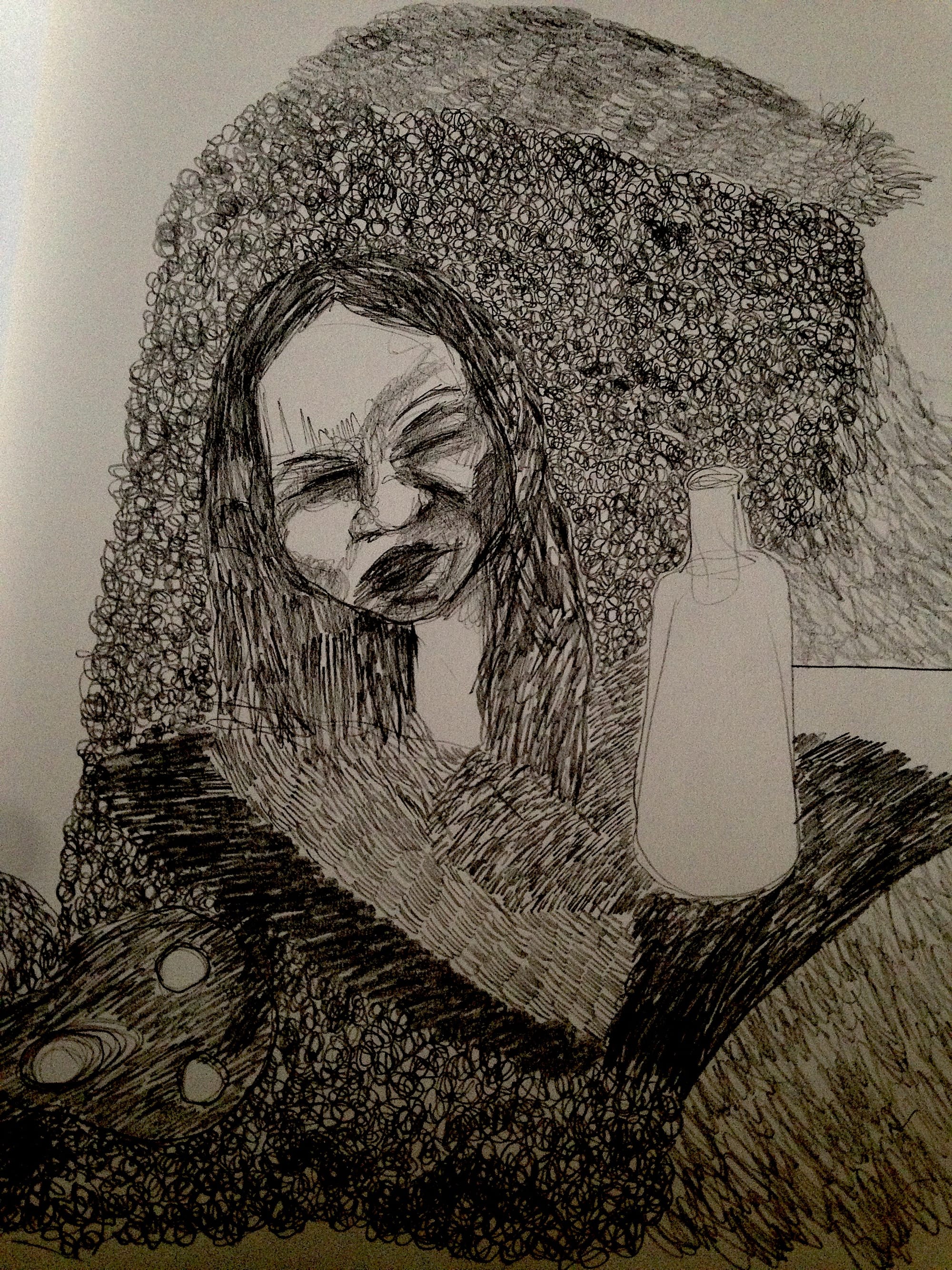
3:16: Are the two foundational Daoist texts, the Daodejing and the Zhuangzi, helpful to contemporary discussions of wellbeing, particularly for skeptics of any theory of wellbeing and anyone who thinks that death is bad for the dead? How would Confucianism handle contemporary discussions of wellbeing – for example, would Confucians suggest the importance of sympathetic concern and how would this be different from, say, Aristotelian pity and Buddhist compassion?
JT: I think most Confucians would be pretty sympathetic to theories that say both basic goods (e.g., contentment, being well-fed) and relationship-oriented virtues are important constituents of human well-being. So long as you have a theory that can explain how both of those things are good for us, they would be open to hearing a case for it. And there are a variety of contemporary theories that could explain how both of those things would be very important prudential goods – some perfectionist theories, objective list theories, and informed desire theories, at minimum. Strong subjective theories – e.g., theories that say you must truly want or value being well-fed having a family in order for those things to count as good for you – would be harder to square with Confucianism, but I can imagine some ways of doing it.
Given the importance of the virtues necessary to sustain and contribute to good human relationships, it shouldn’t be a surprise that Confucians thought a great deal about perspective-taking emotions like sympathy and empathy. Some mainstream Neo-Confucians seem to have notions of virtuous empathizing that come pretty close to Buddhist compassion, insofar as they think the empathizers should see themselves as in some sense united with or continuous with the people that they empathize with. But Dai Zhen (always alert to the creeping influence of Buddhism on his Neo-Confucian predecessors) resists that sort of view and suggests that some awareness of self as a separate person is necessary. Okay, now for the Daoists on well-being. Over the last two or three decades, much of the philosophical work on well-being (which I follow closely and quite enjoy) is conducted in a way that makes certain idealizing methodological assumptions. For example, it proceeds on the assumption that certain sorts of very difficult questions are answerable, questions about the way that meaningfulness or factivity or subjective attitudes do or don’t factor in to someone’s well-being. It also proceeds on the assumption that people are able to make relatively good judgments about strange cases. And the aim of so much philosophizing about well-being seems to be to provide a relatively comprehensive theory that can explain where a life falls on the full spectrum (or perhaps multiple spectra) of well-being, from the very worst life to the very best, even though few of us have much experience of the far ends of that spectrum.
That’s all fine with me. Philosophers often make idealizing assumptions and then run with them just to see where they go, sometimes to good effect. But it’s still very much worth getting realistic and asking what sort of lives we should pursue given that we’re probably not going arrive at a reliable, comprehensive theory of well-being in our own lifetimes. And that’s where the Zhuangzi comes in – it offers views about well-being for people who care about living a life that is good for them but also have a certain skepticism about grand philosophical theories or accounts. The Zhuangzi itself is very eclectic, so it is hard to construct a consistent position, but many of the core passages are meant to make us laugh at the conceit that we could provide confident answers to fundamental questions like the above. There is also a short and pretty remarkable essay at the beginning of a chapter called “Perfect Happiness” or “Reaching Happiness” (chapter 18), which talks about how we can live well even if we are skeptical about accounts that purport to tell us what happiness is, or how to achieve perfect well-being, or how happiness and ethical goodness do or don’t factor into the good life more generally.
The author of that essay ends up concluding that most people fail to live minimally happy lives even by their own standards, due largely to how outcome-obsessed they are in pursuing their good. And it offers Daoist non-action ( wuwei ) – roughly, unselfconscious and spontaneous action – as a relatively reliable way of navigating life without becoming obsessed with outcomes. The argument is difficult to reconstruct, but that’s one way of reading it, and its approach is refreshing and inspiring. I’m not saying that the Zhuangzi offers the best answers for philosophers interested in non-ideal welfare theory. I’m just saying that it provides a compelling model for how non-ideal welfare theorizing can be done, and reminds us that there is a whole level or kind of welfare theory that is pretty much neglected in professional philosophy of well-being these days. Some time ago, contemporary political philosophy took a major turn toward the non-ideal, asking (among other things) what sorts of political principles we should endorse given that we may never know or reach consensus about comprehensive doctrines or basic values.
The Zhuangzi’s approach to philosophical speculation about well-being makes me wonder whether welfare theory shouldn’t be taking a similar turn, or whether there shouldn’t at least be more philosophers doing non-ideal welfare theory. The Zhuangzi offers many arguments and stories that are meant to motivate doubts about the nearly universal assumption that death is bad for the dead. Some of the arguments for the most radical sorts of skepticism are aimed primarily at the belief that it is better to be alive than dead, and that includes the book’s memorable “dream argument” (not the even more famous “butterfly dream” at the end Chapter Two, but the dream argument that resembles Descartes’ and appears shortly before the butterfly dream). As I and many others read the Zhuangzi , most of these arguments and stories are supposed to be read and pondered primarily for their therapeutic benefits. The goal is to get you to stop fearing death and stop being so anxious about prolonging your life. I’m biased, but in my experience, the Zhuangzi ’s stories and arguments are much more effective at this than, say, the arguments against fearing death that come out Greek and Roman Epicureanism. And it is also better at getting its readers to adopt a skeptical stance than many other philosophical skeptics. That’s because the authors of the text aren’t just concerned with fixing our beliefs but also with fixing the belief-like states that constitute and regulate our attitudes and emotions. Just as a person can fear flying in commercial airline flights even while she fully believes that commercial airline flights are much safer than driving, so too can she fear death even while she recognizes that there’s no particular reason to regard death as terrifying or worthy of fear. And that’s because flying and death still seem or appear to be dangerous and terrifying in various ways. The Zhuangzi does a better job than any text I know of at dislodging those appearances. Quite often, it leads you to laugh them off as preposterously overconfident and self-important.
3:16: How would the Cheng Brothers answer the question ‘Why be moral?’ and what does this show us about the relationship of this tradition of ethical thinking compared to Millian or Aristotlelian ethical thought? And segueing to a more political consideration linking ethics to politics, do Confucians think there are moral experts and that political leaders are also moral experts? This would seem to be important when trying to figure out attitudes within Confucianism to authority and tendencies towards authoritarianism – either in Emperor or Party form?
JT: You’re thinking of my response to Yong Huang’s book on the Cheng brothers, Why Be Moral? Huang is careful to distinguish between justificatory and motivational interpretations of the question, and he thinks the question worth asking is basically a motivational one – it is seeking motivating reasons, reasons that will drive us to become morally good or better. On Huang’s reading of the Cheng brothers, their answer is that for human beings there’s a special sort of joy that comes from being moral, and that joy requires moral knowledge in various respects that Huang insightfully documents and unpacks. We can realistically expect to derive a distinctively human sort of joy from knowingly being moral, and that’s why we should do it. I have some reservations about framing this as what I call a “direct motive” – I think that personal joy is supposed to play a more subtle, indirect, and ancillary role in motivating people to be virtuous or morally good. And I also think it is important to distinguish between ways in which experiencing a “distinctively human joy” can motivate us. On one reading that is vaguely Aristotelian in spirit, it is because the joy is distinctively human that we are motivated to get it, and we want it under that description. On another reading that is more Millian in spirit, the fact that the joy is distinctively human explains why it feels so great to us, but it’s not motivational itself. We just want the joy because of its intrinsic qualities or something, and not under the description “distinctively human.” I’m pretty sure that the Cheng brothers would be friendlier to the Millian interpretation than the Aristotelian one. They cared about what makes us distinctively human, but they didn’t think we should be particularly motivated by the desire to be human over and against being an animal or living thing more generally.
On moral expertise – yes, most Confucians think that there are moral or ethical experts in the sense that there are some people who know more than others about how to behave in certain domains of ethical life. There are people who know more about the ethics of parenting, of schooling, of proper conduct at weddings and funerals, dining protocols, etc. But people can draw very different conclusions from this fact, and the Confucians are no exception. One might think that it follows from the fact that someone knows more than you that you should seek their advice, where we understand them as recommending a certain course of action and giving you reasons for that course of action, allowing you to weigh those reasons for yourself and then make up your own mind. But more controversially, one might think that you owe experts your deference, which is to say that you should do as they suggest whether you understand and agree with their reasons or not (and even when they don’t give you reasons).
That stronger conception of the role of the moral expert (as someone to whom you should defer and not just regard as an advice-giver) is more controversial in Confucianism, just as it is among Westerners in the 21stcentury. Due in large part to the influence of the Cheng brothers, it became standard among Confucians to say that “getting it oneself” – which entails knowing on one’s own authority that basic ethical norms are correct – was a central aim of their program of learning. And even the classical Confucian philosopher Xunzi (who is surely in the running for history’s most sophisticated defender of deference to moral expertise) thinks that some autonomous understanding is a valuable regulative ideal and worth aspiring to, even if he insists that most of us will never reach the point that we can trust our own judgment in most ethical domains. In any case, Xunzi became an outlier by the beginning of the second millennium, while the Zhu Xi variant of Neo-Confucianism (also hugely concerned with “getting it oneself”) became orthodoxy all over East Asia, including in China and what is now a very democratic South Korea. So in fact, I don’t think there’s a good case for linking Confucian views on moral expertise to authoritarianism. But it's complicated, because there are many different ways of being pro-advice and pro-deference, and hardly anyone (in any tradition) is a purist.
My interest in the issue of moral expertise and moral deference is just that it was much more at the heart of major debates in Confucian philosophy, whereas until very recently it was more implicit or at the periphery of debates in Western philosophy. Consequently, you can find more sophisticated and nuanced accounts of expertise and deference in Confucianism, especially in the Xunzi, and much richer accounts of autonomous understanding, especially in Neo-Confucianism.And insofar as I’m interested in reconstructing intellectual history, I think we can see the later consensus against Xunzi as motivated largely by the worry that deferring to experts is a bad way to acquire ethical understanding and virtue. I also think that a major motivation for the eventual (overwhelming) consensus among Confucians that human nature is good was precisely that they wanted people to trust some of their own natural ethical judgments and feelings.
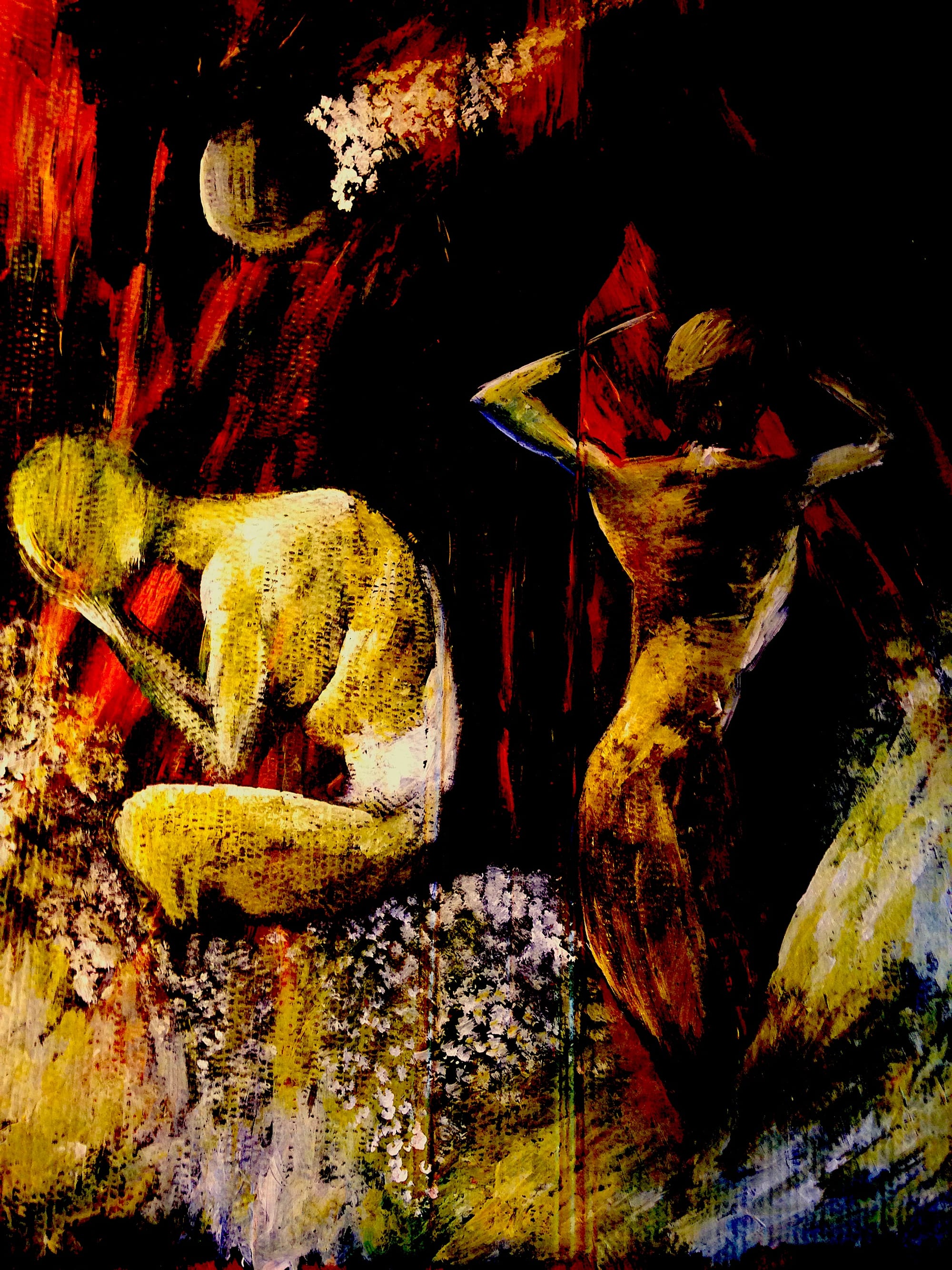
3:16: Does Confucianism have a theory of human rights?
JT: Confucian philosophers certainly have systematic views about human entitlements – things that governments and political authorities should guarantee, protect, or promote for all of their citizens or subjects, in virtue of the fact that their citizens or subjects are human beings. The question is whether their strong commitment to protecting and promoting human entitlements amounts to a commitment to protecting and promoting human rights . When trying to specify what’s distinctive about rights over and above mere entitlements, it’s often necessary to talk about socio-political and institutional mechanisms of enforcement. We have rights to things like freedom of assembly and bodily autonomy because we can claim those rights and thereby begin some sort of fair procedure to get the claim litigated and (hopefully and in the longer run) the right itself protected or guaranteed. But there are also many entitlements that don’t have this special status. For example, people should generally treat one another civilly and do things like hold doors open for others when others’ hands are full. Parents and children should do generous things for one another to show their love and appreciation.
But for a variety of very good reasons, we don’t generally want these sorts of entitlements to be claimable and enforceable in the same way that rights are. To get an intuitive sense of the reasons why some devout Confucians are averse to institutionalized rights and rights consciousness, it is helpful to think about why you wouldn’t want family members solving all of their potential conflicts by claiming rights against each other. If family members were constantly claiming their rights against each other, it would undermine bonds of affection, it would make the family a lot less flexible and dynamic about how they cooperate and work together toward common goals, and it would leave a lot less space in family life for more virtuous, uncoerced, other-directed motives like love and respect. What’s odd about the very heated debate about Confucianism and rights is that there is quite a lot of “talking past one another.” Both sides of the debate – call them “rights compatibilists” and “rights incompatibilists” – agree on a great number of the main points. For example, they agree that the reasons to be averse to rights-claiming are given more weight by traditional Confucian thinkers than by most liberal thinkers, and that for Confucians those reasons apply to a broader range of relationships than just family and other close relationships. They also agree that traditional Confucians could probably countenance rights and rights-claiming as a kind of “fallback mechanism” (to use Joseph Chan’s phrase). For example, if a community becomes so dysfunctional that people’s basic interests are repeatedly ignored, then codifying and allowing regular appeals to rights may be a necessary evil, as it were. The source of the confusion is that compatibilists think that these points count in favor of compatibilism (“see, there’s room for enforceable rights in Confucian societies after all!”) and yet incompatibilists think they count in favor of incompatibilism (“see, Confucians regard enforceable rights as an inferior alternative!”).
My primary interventions in the debate have been to show that there is the aforementioned confusion, to argue that the controversy is really about the claiming power and enforcement power of human rights (not about human entitlements as such), and to start to develop a conceptual framework that we could use to clarify whether the fallback mechanism view counts in favor of compatibilism or incompatibilism. On the last issue, I tend to think that traditional Confucian philosophers would want rights and rights-consciousness to be further in the background than many liberal thinkers would prefer or allow, so I suppose I side with the rights incompatibilists in that particular respect. Just to be clear, though, I think it does a profound disservice to people living in modern states when there are no institutional guarantees of their basic rights. This is surely true of people who grow up in Confucian cultures too, and will still be true even if it turns out that institutionalized rights are fundamentally incompatible with the core doctrines of one or more of the ancient Confucian sages. Also, it’s worth bearing in mind something that I said in response to your earlier question: Chinese society and political culture aren’t just shaped by classical Confucianism but rather a complex blend of evolving political ideologies that draw from both Confucianism and Legalism. Legalism was quietly integrated into the political culture and into post-Qin Confucian political thought long ago, and the more Legalist strands do prioritize the impartial and consistent enforcement of laws and legal procedures.
3:16: Do Confucians argue that “people” and not “institutional rules” are the proper sources of good governance and social order? Is this a type of virtue ethics that is being proposed here, especially the version developed by Zhu Xi? And is Huang Zongxi being misrepresented when understood as an arch institutionalist? This seems to have great contemporary relevance as we look at the developments within modern day China.
JT: It’s almost a platitude that the most influential Confucian philosophers are proponents of “virtue politics,” by which folks seem to mean an approach to improving governance that prioritizes improving the character of the people who govern and doesn’t prioritize fixing institutional rules or procedures. And then there’s an interesting and somewhat contrarian “statecraft” tradition in later Confucianism, which is more concerned with finding institutional fixes that will help improve things without doing much to rid the political class of its laziness or selfishness. The tensions between two approaches generate many of the great debates Chinese political thought, and yet the positions they presuppose tend to be so ill-defined and fuzzy that, before writing a paper on this topic, it wasn’t really clear to me what would count as a successful argument for or against either the virtue-political approach or the more statecraft-oriented approach. For example, both the virtue-political thinkers and the statecraft thinkers will talk about improving character and fixing institutional rules and procedures, and both will concede that institutions can shape character and character can shape institutions. So what, exactly, do they disagree about? And what the arguments for those specific positions?
As I see it, the real point of contention is basically about what to do once you already have decent or viable rules in place. If the rules are terribly crude or create perverse incentives, then of course they should be fixed – even the virtue-political thinkers will concede that point. But at some point, you could have rules that don’t have those obvious sorts of problems, and that’s when the controversy arises. Virtue-political thinkers maintain that you can’t really improve upon decent rules without also taking steps to ensure that the people who implement the rules have good ethical judgment and character, whereas institutionalists think that it is still possible to make further improvements without concomitant improvements in the virtue of the government officials.
And the arguments are really interesting too. For example, Xunzi draws a helpful analogy between governing and archery – to be a great archer, there must be some rules in place (e.g., stand at least a certain distance from the target, use equipment that meets certain specifications, more points for hitting the bullseye, etc.), but it’s the strength and skill of the master archers that most accounts for great archery, not the rules. The rules are pretty simple and straightforward, and presumably there are a range of possible rules that could set the stage for great archery. As virtue-political Confucians see it, something analogous is true for good governance, and virtue’s causal role in good governance is more similar to the role of strength and skill in great archery. Another argument that I take (with some interpretive liberties) from Zhu Xi is that at a certain point in a process of refining institutional rules, any further improvements will invariably trade against other defects – think of how more open-ended rules are more easily abused while really specific rules tend to be procrustean and become outdated much more quickly than the open-ended ones. As Zhu says, all rules will have defects and it’s just up to the person of good character to find ways of making up for them. That’s another long-overlooked argument that needs more careful analysis and consideration. And then, as a third and better-known argument, there is ubiquitous appeal to the problem of underdetermination – no matter how specific the rules may be, there will still be many, many ways of implementing a system of rules to particular cases, so that some judgment-calls are unavoidable.
The great reform-minded political philosopher Huang Zongxi is usually regarded as a kind of paradigmatic institutionalist, but on my account his views are mixed, because some his institutional reforms are meant to improve the character of the emperor and other office-holders. I’m also interested in Huang because he thought a lot about institutional rules designed for what I call “moral offloading” – that is, designed so that the institutions themselves and not the moral virtue of the ruler do some of the work of motivating wise and benevolent governance.
Here again, the philosophical discourse is very rich, but many of the relevant texts haven’t been translated.
3:16: And why don’t you think there is a fully fledged right to rebellion against authoritarian rule in the Mengzi and suggest that his “just revolt theory” suggests an intriguing division of justificatory labor, as you put it?
JT: Mengzi is more concerned about bad rulers than authoritarian rulers – it is harder to say whether he would object to authoritarianism as such. He was famous for saying (sometimes quite directly and with only the thinnest veneer of ritual courtesy) that rulers who don’t provide for the basic needs of their people should be fired. Ideally, they’d just fire themselves or members of the ruler’s family would depose them, but if all else fails, a broader rebellion could be warranted. For much of the modern era, scholars of Confucianism have cited Mengzi’s views on rebellion as evidence that he was a kind of proto-democratic thinker and believed in a right of popular rebellion. In fact, I think there’s pretty good evidence that Mengzi had a relatively clear theory of “just revolt” (just as he had a relatively clear theory of just war), with lexically ordered criteria that must be met before revolution could even be considered warranted, etc. An important indicator of this theory is that he sometimes referred to the political figures who could justifiably lead a revolt with a special term, “Heaven’s Delegate” (Tian li 天吏), which is surely meant to link up with influential views about Heaven’s Mandate (Tian ming 天命) as a basis for political authority. In classical Chinese, a “delegate” (li) is someone who is empowered to carry out a specific task by a superior’s mandate or command (ming).
The “division of justificatory labor” that you mention refers to the way in which the expressed preferences of the people factor into a proper justification of rebellion. When the people show in clear and overwhelming ways that they don’t like a ruler, and they show in clear and overwhelming ways that they do like some other political figure (the would-be Heaven’s Delegate), that is supposed to tell us something critical about the quality of ordinary people’s lives under the political figures in question. Mengzi doesn’t give any weight to ordinary people’s more political judgments about whether revolt would be justified, what methods would be warranted, whether the timing is right, what sort of institutions should be set up under the new regime, etc. He is pretty clear that the more political judgments are to be left up to the political class. So, in the final analysis, he falls short of endorsing a true right of popularrebellion. The people can send signals about their quality of life but they can’t decide for themselves whether a rebellion is warranted. However, it is noteworthy that his just revolt theory still imposes relatively strict conditions on members of the political class who contemplate revolting. It isn’t for political leaders to decide for ordinary people whether their lives are good or bad under a particular ruler – all they can do is wait for clear and overwhelming signs from the people themselves.
3:16: And finally for the readers here at 3:16, are there five books you can recommend that will take us further into your philosphical world?
JT: One of the recurring themes of this interview has been that a lot of the materials that I find to be so philosophically rich and interesting have yet to be translated into English, so I’m a bit hard pressed. But here goes.
Instead of just reading the Chinese classics on their own, I recommend reading them together with descriptions of the interpretations offered by traditional commentators and influential scholars in history. Doing it that way gives you a better sense of the philosophical tradition in its fullness. And as a bonus, it also gives you an experience that more closely approximates the historical experience of many students and scholars of East Asian philosophy (most everyone read the classics in conjunction with commentaries). With that in mind, I tend to prefer English translations that include annotations that draw from traditional commentaries and scholarship, such as Edward Slingerland’s translation of the Analects and Bryan Van Norden’s translation of the Mengzi.
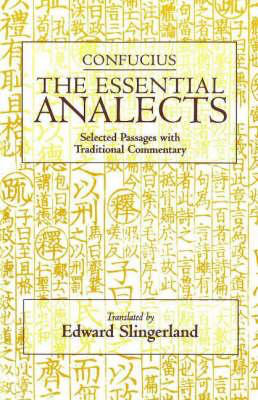
Both the Slingerland Analects
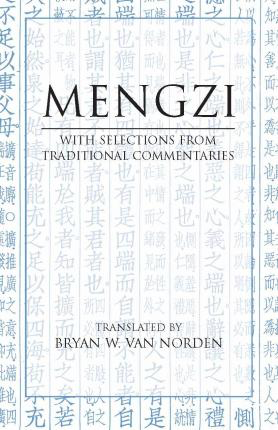
and the Van Norden Mengzi offer great points of entry into the Confucian tradition as a center of debate and disagreement.
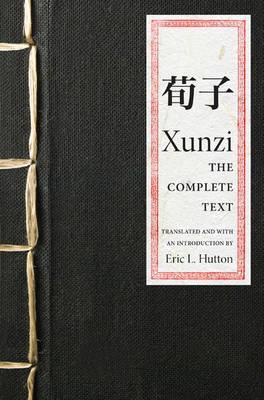
Since I promised your readers that there are interesting expository essays in traditional Chinese philosophy (and not just pithy aphorisms or the like), I would encourage people to read the Xunzi, in particular the complete translation by Eric Hutton. Nowadays, the Xunzi is most famous for defending the thesis that human nature is bad, but in fact the text is quite comprehensive and wide-ranging, with chapters on the epistemic virtues, the nature and function of language, why enlightened people should practice traditional rituals despite not believing in the supernatural hocus-pocus that traditionally underwrites them, and (especially) political philosophy and virtue theory. The political philosophy is notable for being relatively careful to maintain different tracks for ideal and non-ideal theories of governance, defending a certain vision of governance for ideal circumstances and others for non-ideal ones.
I continue to think that people interested in philosophy as a way of life simply must be familiar with the Zhuangzi. Taken in its entirety, the book is uneven and has some parts that tend toward the superficial or impenetrable. But other parts are deeply moving and unforgettable, and serve as powerful medicine for our all-too-human philosophical pretensions. I would recommend reading a good introduction to the text first, and then picking up and two or three translations and comparing them, especially the translations by A.C. Graham, Burton Watson, and Brook Ziporyn.
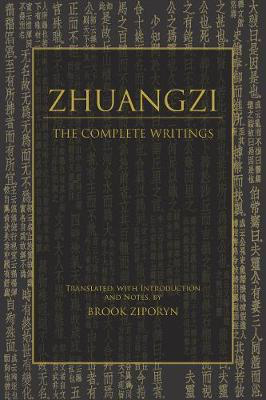
Ziporyn’s Zhuangzi: The Essential Writings translates selected commentaries in an appendix, which again offers a more nuanced and historical way of entering into the rich philosophical tradition that grew around this extraordinary classic. Many philosophers will find the comments by Guo Xiang (the editor of the received version of the text, some of whose comments Ziporyn translates) to be as interesting as the primary text itself.
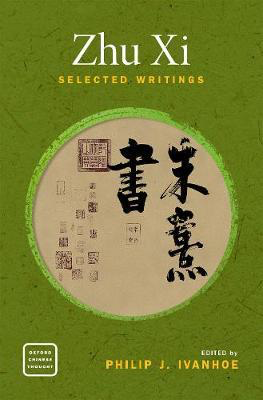
As you noted, the philosophical giant in East Asian philosophy is Zhu Xi, and yet so little of his work has been translated. The selected translation that comes closest to giving you a comprehensive picture of his philosophical worldview is the one edited by Philip J. Ivanhoe, which is Zhu Xi: Selected Writings. The translations in that volume are also excellent. In ten years, I hope and reasonably expect, there will be many more high-quality translations of Zhu Xi and the other towering figures in the rich post-classical Chinese tradition.

ABOUT THE INTERVIEWER
Richard Marshall is biding his time.
Buy his second book here or his first book here to keep him biding!
End Time series: the themes
Huw Price's Flickering Shadows series.
Steven DeLay's Finding meaning series
Josef Mitterer's The Beyond of Philosophy serialised
NEW: Art from 3:16am Exhibition - details here